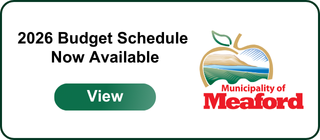 Whether I agree with them or not, I am always very interested when people share their opinions on issues that face us.
Whether I agree with them or not, I am always very interested when people share their opinions on issues that face us.
Throughout my life I have often learned more from folks with whom I have differing views than I have learned while staying safe within my bubble of like-minded friends and acquaintances. In recent years however, we seem to be more polarized than ever, making it more of a challenge to bridge gaps, and to have civil conversations with those with whom we might not agree. When opposing sides become so deeply divided it can hamper progress, as little gets done between the bickering parties.
Whenever I feel that we Canadians have become too polarized as a society, I look south of our border, where the divisions have been growing at an alarming rate over the past couple of decades. As I noted in our print newspaper back in July however, we Canadians have indeed become increasingly polarized, and an ongoing study which began in 1965 demonstrates just how polarized we have become.
“Since 1965, teams of political scientists have surveyed thousands of Canadians after every federal election. Most of the questions don’t change from one survey to the next, so the Canadian Election Study has become a basic tool for measuring Canadians’ attitudes toward politics, the economy and one another over time. It’s now older than the latest generation of academics who run it,” noted a column published in the Globe & Mail in May of this year.
Interestingly, one of the standard sets of questions in that study is called the ‘feeling thermometer’, and respondents are given the name of a political party, and asked how they feel about it on a scale from zero to 100, with a zero representing a very negative feeling, and 100 representing a very positive feeling.
“From 1988 to 2004, the average gap between the two scores, for supporters of all parties, was about 20 points. It would bump up or down a bit from election to election, but it stayed close to 20 points,” the column advised. “…Then the gap started to widen, fairly consistently through five consecutive elections, until in 2019 it had more than doubled to 44 points.”
As the column noted, “Canadians used to think the parties they voted against were all right, just not their cup of tea. Lately they more often believe the opposing party is beyond redemption.”
That is a real shift in our views of political parties with which we do not personally align, and there is a term for this phenomenon – ‘affective polarization’, which the column explained is essentially ‘disdain for the other side’.
“This gap is actually bigger than partisans’ real disagreement on the issues facing government, such as taxation, immigration, or crime and punishment. It hasn’t only been happening in Canada. Affective polarization was first identified in the United States where, like most things, it’s bigger than here,” the column noted, adding that the same phenomenon is being seen in many nations.
It is no wonder that having civil conversations with those with opposing views has become more difficult in recent years, with many preferring to align themselves with a camp that reflects their own views, shutting everyone else out, often labelling them as the ‘enemy’.
Though I have tried my best over the past few years to avoid falling down the rabbit hole that is American politics, it has proven to be more difficult in recent weeks with the presidential race coming down to the final weeks. I have often thought that we are fortunate here in Canada, as we have not become as deeply divided as our American friends have in recent decades, but as the study noted, the gap is closing.
“Affective polarization erodes communities because people who support opposing parties increasingly don’t even want to know one another. In the United States, about 40 per cent of respondents say they’d be upset if their son or daughter married someone from another party, or if such a person became their neighbour,” the column advised, adding that while that number is lower in Canada at roughly 29 percent, it is growing.
Obviously we wouldn’t want us to all think and feel the same way, but the polarization we have been experiencing seems to be stripping away our empathy, and we have increasingly become an ‘us against them’ society where you either agree with someone, or they are an enemy, and from my perspective that is a sad state of affairs indeed.
While differences of opinion can be very healthy, significant polarization can be dangerous. Perhaps I am old fashioned in some way, but I miss the days when honourable people could honourably disagree with one another and still be friends, but we are currently living in an age when those who disagree with us are somehow the enemy to be shunned.
Don’t misunderstand, I am not suggesting that we need to bring everyone in line and onto the same page for every issue that faces us. I am not even suggesting that anyone on any side of the issues need to change their mindset, but we desperately need to develop a greater understanding of and a respect for the views of others. We don’t need to accept views other than our own, but we should learn to understand them because understanding leads to respect, which leads to trust, and that can be much more productive in the long run.
I truly appreciate anyone brave enough these days to respectfully engage in discussions or to debate with others. I am always thankful for those who share their passion, who share their knowledge, or their ideals and opinions, even when I don’t agree with them. But I fear that our divisions are growing, and we are less and less likely to respect opponents, or to simply respectfully disagree. Instead, many just want to ‘win’, many want to mock their opponents, or call names, or to demonize them, and that is a shame indeed.










